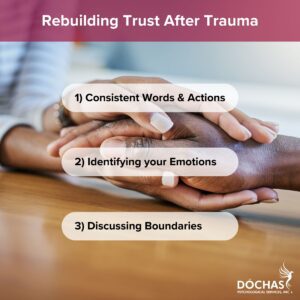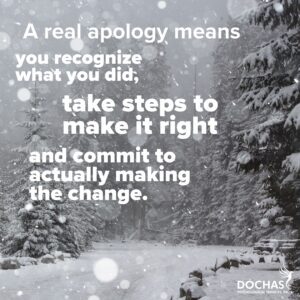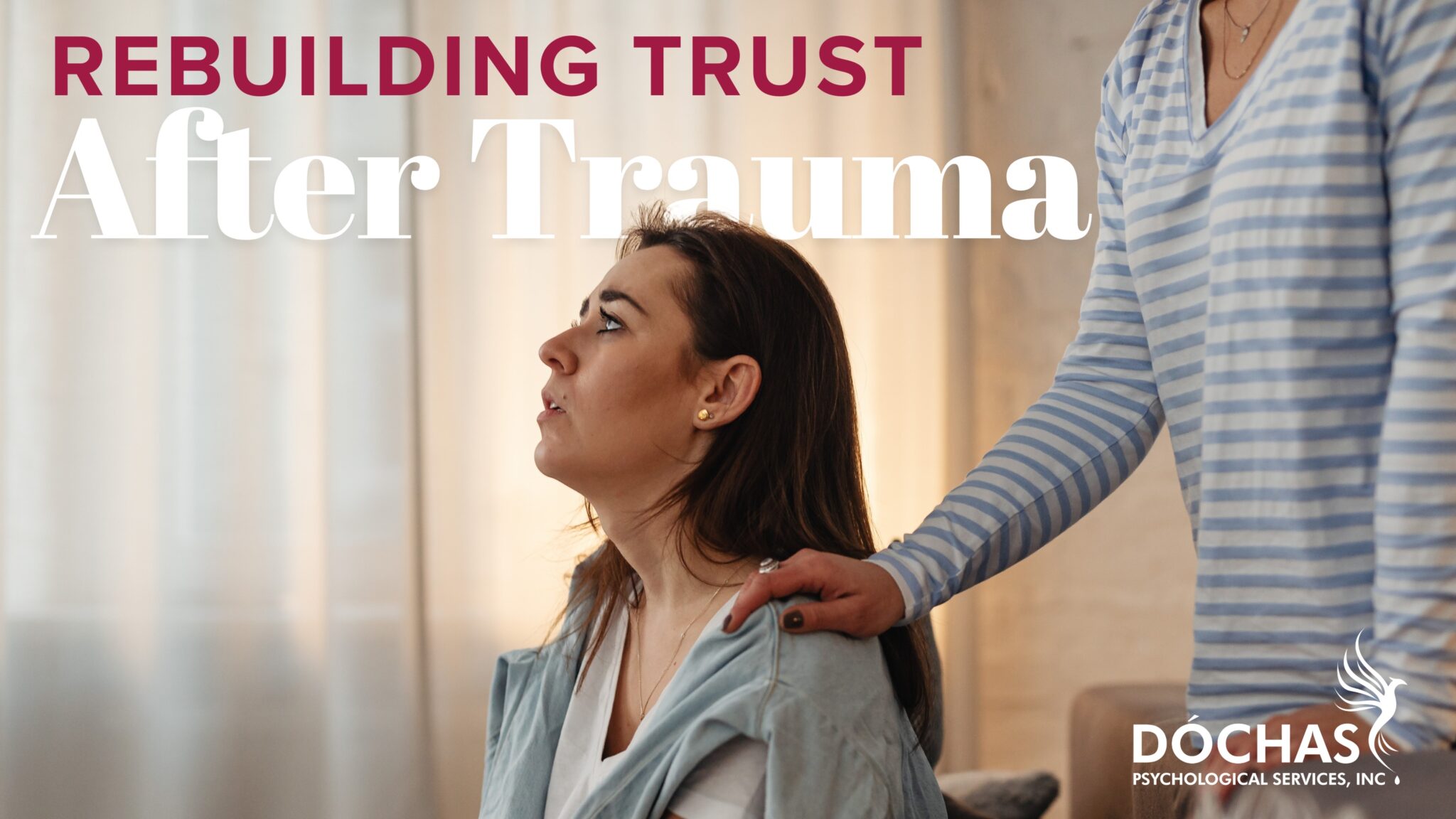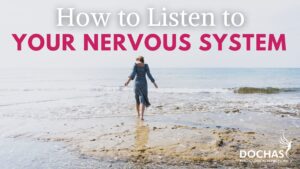When you go through trauma, it doesn’t just impact you – it can ripple out and affect every part of life, especially your relationships. This can feel overwhelming, whether you’re the person who is navigating trauma or the one supporting a partner who is. So, how do you rebuild trust, strengthen your connection, and move forward together?
It’s Kim on the blog, the founder of Dóchas Psychological in Spruce Grove, Alberta. A few months ago I wrote a blog about how trauma impacts relationships and today I’ll explore how trauma impacts trust and communication and share ways you can start rebuilding that trust. The goal? To help you create a stronger, healthier connection with the person who matters most to you. You can watch my video on rebuilding trust here:
The Impact of Trauma on Trust
Trauma can really shake the foundations of trust – not just trust in others, but trust in yourself. You might not even trust your own judgments anymore. You might find yourself second-guessing, doubting yourself, and unable to fully rely on your loved ones.
In romantic relationships, this can create a cycle of misunderstanding and distance. If you’ve experienced trauma, you may act withdrawn, unpredictable, or overly cautious – these responses are your brain’s way of trying to protect itself after experiencing something overwhelming. Your partner might feel confused and hurt, because they don’t feel they’ve done anything wrong to make you act this way.
How To Rebuild Trust

Rebuilding trust will take time, but both you and your partner need to start with small, steady actions. Here’s how:
- Consistency: It is so important for both partners to align what they say with what they do. When actions consistently match words, it creates a sense of predictability and safety.
- Identify your Emotions: Learning to identify and name your emotions or physical sensations is a game-changer. If you’re unsure what you’re feeling, it’s totally okay to say, “I’m not sure what’s going on right now.”
- Even asking your partner “What’s happening for you right now?” can open up dialogue in a supportive way.
- Discuss Boundaries: Surprises are not fun for someone with trauma. Setting clear boundaries about what feels comfortable regarding spontaneity and surprises can help both partners feel more secure.
You’re Not Alone
Rebuilding trust isn’t something you have to do alone. It is so valuable to ask for help from a trusted friend, family member, or therapist when you are navigating difficulties in your romantic relationship. They can help you recognize patterns, stay grounded, and calm down.
Take Accountability

Let’s face it – we’re all going to mess up and do the wrong thing sometimes. If you lose your temper or say something hurtful to your partner, the most important thing to do is take accountability. A real apology means that you recognize what you did, take steps to make it right, and commit to actually making the change.
Here’s the thing: an apology without follow-through is just words. Real trust is rebuilt through your actions.
Moving Forward from Trauma
In my next blog, I will explain ways that you can feel empowered or help your partner rediscover their agency.
Through consistency, open communication, a willingness to keep trying, and maybe some therapy, you can create a strong foundation for your relationship.
If you or someone you know is struggling with this, please reach out at 780-446-0300 or info@dochaspsych.com – we would be happy to work with you.
About Dóchas Psychological
Dóchas Psychological Services is a well-established and trusted therapy clinic located in Spruce Grove, Alberta. At Dóchas we value the idea that everyone deserves a safe space. Through connection and education, our team works hard to build a trustworthy relationship with each of our clients. It is our goal to create a community for our clients to feel like they belong.
Disclaimer
Information provided through Dóchas Psychological Services blogs or vlogs is meant for educational purposes only. They are NOT medical or mental health advice. You can read more about our disclaimer here.









